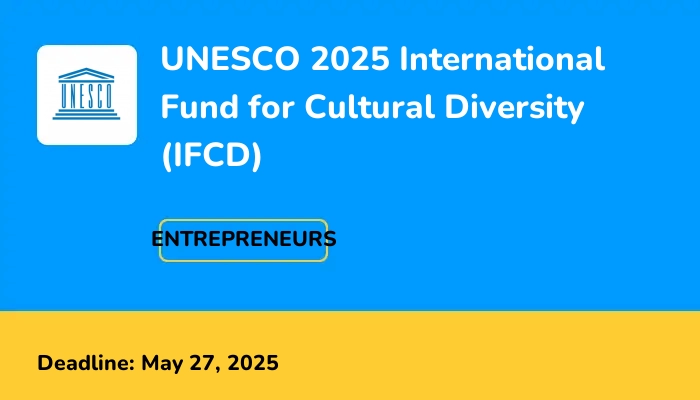 Menu
Menu
Published: 28 Mar 2025 178 views

Its purpose is to foster the emergence of dynamic cultural sectors in developing countries that are Parties to the 2005 Convention, through strengthening the means to create, produce, distribute and have access to diverse cultural goods and services. As a multi-donor fund, the IFCD promotes South-South and North-South cooperation, while contributing to the achievement of the UN Sustainable Development Goals, including gender equality and poverty reduction.
Through an open and competitive process, UNESCO fund innovative projects with up to US$ 100,000, implemented over a 12–24-month period. The projects are evaluated based on their relevance, feasibility, financial management capacity and expected results.
UNESCO is the United Nations Educational, Scientific and Cultural Organization. It seeks to build peace through international cooperation in Education, the Sciences and Culture. UNESCO's programmes contribute to the achievement of the Sustainable Development Goals defined in Agenda 2030, adopted by the UN General Assembly in 2015. Political and economic arrangements of governments are not enough to secure the lasting and sincere support of the peoples. Peace must be founded upon dialogue and mutual understanding. Peace must be built upon the intellectual and moral solidarity of humanity. I... continue reading

| Application Deadline | 27 May 2025 |
| Type | Entrepreneurs |
| Sponsor | United Nations Educational, Scientific and Cultural Organization (UNESCO) |
| Gender | Men and Women |
Public authorities and institutions from eligible countries (developing countries, Parties to the 2005 Convention).
Non-governmental organizations (NGOs) from eligible countries (developing countries, Parties to the 2005 Convention)
International non-governmental organizations (INGOs) registered in countries Parties to the 2005 Convention
Eligible projects
The IFCD invests in projects that lead to structural change through:
The introduction and/or elaboration of policies and mesures that have a direct effect on the creation, production, distribution of and access to a diversity of cultural expressions, including cultural goods, services and activities;
The reinforcement of human and institutional capacities of public sector and civil society organizations, deemed necessary to support viable local and regional cultural industries and markets in developing countries.
For more details, visit UNESCO webpage